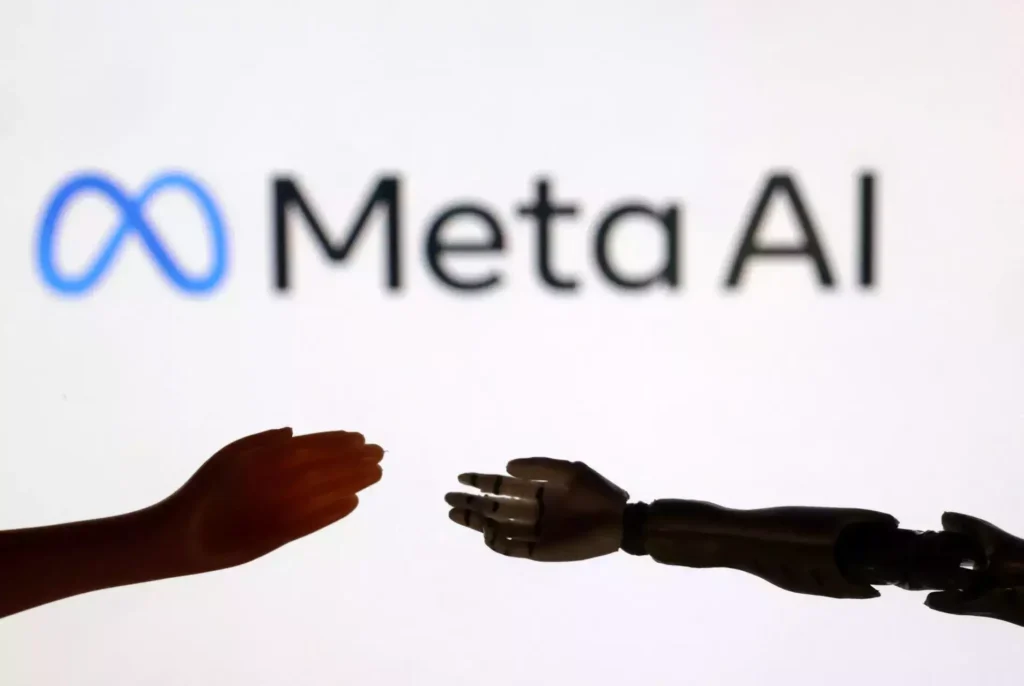Meta becomes the latest big tech company turning to nuclear power for AI needs

Meta Taps Nuclear Power to Fuel Its Growing AI Ambitions
Meta, the tech giant behind Facebook, Instagram, and WhatsApp, has taken a bold step to meet its rapidly expanding energy demands. The company has entered into a 20-year agreement to secure power from a nuclear facility—marking a significant shift in how big tech approaches sustainability and computing power needs in the age of artificial intelligence.
As the race for AI dominance intensifies, companies like Meta are exploring more sustainable and stable power sources. With data centers consuming more electricity than ever before, nuclear energy is emerging as an increasingly attractive solution for long-term energy security—offering zero-carbon emissions and uninterrupted supply.
The Deal in Detail
Meta’s new partnership centers around a long-term commitment to use nuclear power to run its AI-driven infrastructure. The 20-year deal was struck with Constellation Energy, the largest producer of carbon-free energy in the United States. While specific financial details haven’t been disclosed, the scope of the agreement is substantial and represents one of the largest commercial energy deals of its kind in recent memory.
Constellation will provide electricity from its Nine Mile Point Nuclear Station in upstate New York, one of the country’s oldest nuclear plants. The power will be directed towards Meta’s expanding network of data centers—particularly those involved in AI workloads, which demand a consistent and immense flow of energy.
Why Nuclear Power?
Nuclear energy isn’t new, but its re-emergence in tech conversations marks a shift in mindset. Previously considered controversial due to waste disposal concerns and high initial investment costs, nuclear power is now being reevaluated in the context of clean energy and reliability.
Unlike wind or solar, nuclear plants provide uninterrupted, around-the-clock electricity, a feature crucial for AI models that run 24/7. Moreover, as governments and corporations set aggressive net-zero targets, nuclear energy—being carbon-free—fits into long-term sustainability plans.
Meta has already committed to achieving net-zero emissions across its operations by 2030, and this deal strengthens that pledge while also supporting the infrastructure needed for future innovations in AI.
The AI Boom and the Power Problem
The demand for AI tools has exploded in recent years. From generative AI like ChatGPT to complex recommendation algorithms and virtual reality interfaces, the processing power required has skyrocketed. Each of these applications requires massive amounts of data to be stored, accessed, and analyzed in real time—tasks handled by data centers operating on vast energy supplies.
Reports suggest that global data centers consume more than 200 terawatt-hours of electricity annually, roughly the same as some mid-sized countries. AI-related tasks now account for a significant and growing portion of that consumption.
With renewable energy sources sometimes facing instability due to weather or storage limitations, nuclear energy offers a steady alternative.
Meta’s Bigger Sustainability Goals
This move isn’t an isolated one. Meta has been making strides in energy efficiency and sustainability for years. As of 2021, the company stated it had reached net-zero emissions for its global operations and was sourcing 100% renewable energy.
However, “renewable” doesn’t always mean “reliable.” The variability of solar and wind energy creates a gap for high-demand operations like AI servers. Nuclear fills that gap, allowing Meta to maintain both performance and its environmental goals.
In a statement, Meta noted:
“We’re committed to meeting our sustainability goals while scaling AI responsibly. Nuclear energy offers a stable, clean solution that complements our vision.”
The Bigger Picture: Big Tech and Nuclear Energy
Meta isn’t alone. Several tech companies are beginning to explore nuclear options to support their growing operations:
- Microsoft has reportedly been exploring small modular reactors (SMRs) for data centers.
- Amazon Web Services (AWS) is looking into longer-term nuclear partnerships.
- Google has partnered with clean energy providers that include nuclear projects in their portfolios.
While the idea of tech companies supporting nuclear power may have raised eyebrows a decade ago, the narrative is changing. Now, it’s about balancing innovation, reliability, and sustainability in a fast-moving digital world.
Challenges and Considerations
Although the benefits of nuclear energy are becoming more accepted, challenges remain. Public perception of nuclear power is still mixed due to past disasters and waste disposal concerns. Moreover, building or upgrading nuclear infrastructure involves significant regulatory and financial hurdles.
However, Meta’s deal is forward-looking. It doesn’t involve building new nuclear plants but rather optimizing existing ones to provide targeted, clean energy to data-driven operations. This approach could serve as a model for other corporations wary of public backlash or high construction costs.
Looking Ahead
This 20-year commitment to nuclear energy shows that Meta is thinking long term—not just in terms of sustainability but also in how it powers the AI revolution.
As machine learning models become larger, and as the metaverse and augmented reality initiatives evolve, the need for dependable energy sources will only grow. Meta’s strategic alignment with nuclear energy could well be the first of many such collaborations between tech and atomic power.
Whether it sets a new standard for responsible AI development or not, it certainly highlights the changing priorities of big tech in a world increasingly shaped by energy, ethics, and exponential innovation.






